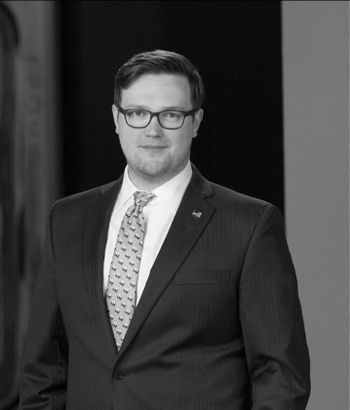Time is running out for SFSU to deliver public records about Riley Gaines attack
San Francisco State University has three days to deliver documents, but history shows there is not much to hope for.
'SFSU’s apparent refusal to cooperate with Campus Reform undermines the purpose of transparency laws.'
San Francisco State University has just a few days to comply with a public records request about its handling of the attack on Riley Gaines, a former college athlete who was swarmed by a leftist mob at her “Save Women’s Sports” speaking event at SFSU in early April.
Gaines, a vocal advocate against transgender biological males competing in women’s sports, alleged that she was struck by a biologically male protester during the incident. The chaos was allegedly exacerbated by SFSU’s lack of safety measures and preparedness. Gaines claimed she was “held hostage” for three hours, and missed her flight home because it was “not safe to leave” the area.
Riley Gaines was attacked by a leftist mob on Thursday night during a “Save Women’s Sports” event at San Francisco State University.
During the incident, Gaines was allegedly hit by a biologically male transgender protester.
📰 Get the full story at the link in bio. pic.twitter.com/GeziHD0JaK— Campus Reform (@campusreform) April 7, 2023
Following the attack, Campus Reform filed a public record request with the university seeking communication records related to the incident, but it has been employing various legal tactics to prolong the document production deadline.
[RELATED: University charges Campus Reform $357,400 to conduct public record request]
Public Records and Subpoena Program Coordinator Anna Navarrete first responded to Campus Reform’s request on April 20. Attached to the email was SFSU’s “Initial Response to Public Records Act Request.”
It read, in part, “[California State University (CSU)] has conducted a reasonable search for these records under California Government Code §7922.535 and has determined that your request, either in whole or in part, seeks copies of disclosable public records. CSU will make available to you any that are public.”
While many records, such as employee records, student records, records involved in cases subject to attorney-client privilege, and others, would need to be redacted due to various legal requirements, Navarrete explained that “CSU estimates the records will be available on or before June 30, 2023.”
[RELATED: EXCLUSIVE: How 12 public universities spent $230K on DEI training over 20 years]
But that was the last Campus Reform heard from SFSU until on May 30 it raised concerns about SFSU’s response time.
In a May 30 email to SFSU Campus Reform wrote, in part, “We last heard from your team on 4/25/23, where you confirmed receipt of the request. However, we have not heard from you since. Can you please send … an update on this request? Does your team have documents?”
Roughly 2 hours later, SFSU responded: “We are still working on this request.”
Though timely, that response failed to provide any detail.
In an effort to facilitate the production of documents, Campus Reform sent a message the following day asking if the university would agree to “releasing records on a rolling basis” and also asked Navarrete to provide an estimated number of documents Campus Reform should expect to receive.
Replying shortly after, Navarrete noted that when her office sent the initial response letter, it had not gathered any records related to the request, but did mention that she would speak with University Counsel about releasing records on a rolling basis.
“At the moment I don’t have a number for you. I will talk to University Counsel and see if it is possible to release the records on a rolling basis,” she wrote.
On June 6, Navarrete followed up, writing that the university agreed to release records on a rolling basis.
Campus Reform replied on June 12:
“Great. Let’s set dates then. Can we split this in 3 rounds? 1st to be sent Friday, June 16th; 2nd to be sent Friday, June 23rd; 3rd to be sent Friday, June 30th.”
Navarrete replied: “The first round can be June 30th which is the estimated date I gave on the letter. After that I will see how much is left to review and go from there.”
Her response, however, defeats the purpose of agreeing to a rolling basis.
“June 30 is when your office originally anticipated having all records available,” Campus Reform wrote back.
But, even at the time of this publication, Navarrete has said nothing in response.
“SFSU’s apparent refusal to cooperate with Campus Reform undermines the purpose of transparency laws,” Southeastern Legal Foundation Attorney, Director of 1A Project Cece O’Leary told Campus Reform. “It also makes one wonder why SFSU is stalling. What does it have to hide?”
But this story involving SFSU is just another dark blot in the tapestry of public distrust.
Campus Reform is undergoing the same game of document hide and seek with Wayne State University (WSU) in Detroit, which has delayed document production for a public record request for more than 10 weeks.
WSU received Campus Reform’s public record request in late March which sought the release of emails related to a suspended professor who called for murdering conservative campus speakers.
The university initially delayed acknowledging the request and later requested a deposit fee to proceed, but despite ongoing communication and payment fulfillment, the university failed to provide the requested documents within a reasonable timeframe.
“We need more transparency and accountability from our public institutions, not less,” O’Leary concluded.
But lack of transparency remains the norm.
Campus Reform contacted SFSU for comment on June 26, but has not received a response.
SFSU has three days to deliver documents, but history shows there is not much to hope for.
Follow Jared Gould on Twitter for more stories like this.

